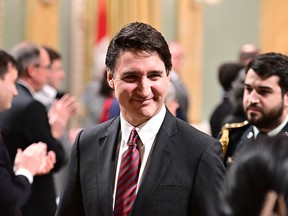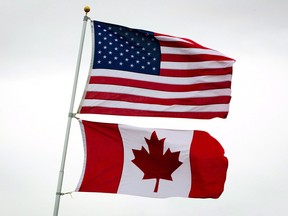Trudeau Leaves Canada in Suspense as Anxious Liberals Urge Him to Resign
As the holiday period comes to an end, Canadian politics is gripped by a single question: when will Justin Trudeau announce his decision about his future?
The Prime Minister’s Disappearance from Public View
Since December 16th, when Chrystia Freeland resigned as Finance Minister in a scathing public letter that criticized Trudeau, the Prime Minister has largely disappeared from public view. It is reported that he spent much of the holidays at a ski resort in western Canada and has no official events or appearances planned by the end of the week.
Pressure Mounts on Trudeau to Resign
Lawmakers in his Liberal Party are increasingly anxious for him to quit, with polling numbers sliding further and a new survey by Nanos Research showing the Conservative Party leading. The Liberals have launched pre-election advertising, focusing on concerns that Conservatives will cut social programs. However, it would be difficult for the party to smoothly transition to new leadership.
A Leadership Race May Take Three Months
Even if the Liberals are able to avoid a forced election during a leadership contest, the winner would have a relatively short period of time, maybe only weeks, before being thrown into a national campaign. To ensure continuity in government, Trudeau could resign but say he’s staying in office while a leadership race takes place.
A Politically Wounded Prime Minister is Not Well-Positioned to Negotiate
According to Nik Nanos, founder of Nanos Research, "a politically wounded prime minister is not really in a very strong position to negotiate anything with someone like Donald Trump." Regardless, the Liberal Party faces a difficult road in 2025, even with a new leader. They would need a major turnaround in public opinion just to save most of their seats, much less hold onto government.
The Liberals’ Worst Showing in Any National Election
The party’s worst showing was in 2011, when they won 19% of the popular vote, translating into just 34 of 308 seats. About two years later, they chose Trudeau as their new leader. "He took the Liberals out of the wilderness," Nanos said. "It very well may be that he will return them to the political wilderness at the end of the next federal election."
The Situation Continues to Unfold
As the situation continues to unfold, one thing is clear: Trudeau’s departure from office would have significant implications for Canadian politics and the Liberal Party. Whether he chooses to resign or face a leadership contest, the outcome will shape the future of the party and the country.
A Timeline of Events
- December 16th: Chrystia Freeland resigns as Finance Minister in a public letter that criticizes Trudeau.
- Holidays: Trudeau spends time at a ski resort in western Canada and has no official events or appearances planned by the end of the week.
- January: The House resumes sitting, and the Liberal Party launches pre-election advertising.
- 2025: The next federal election is scheduled to take place.
The Implications of Trudeau’s Departure
While it is impossible to predict exactly what will happen if Trudeau resigns or faces a leadership contest, there are several possible scenarios:
- A new leader takes over the Liberal Party and tries to turn around public opinion.
- The party chooses a candidate who can unite its base and appeal to swing voters.
- The party’s polling numbers improve, and they are able to hold onto government.
However, it is also possible that:
- Trudeau’s departure leads to a forced election during a leadership contest.
- The winner of the leadership race has limited time before being thrown into a national campaign.
- The Liberal Party struggles to transition to new leadership and faces difficulties in the short term.



